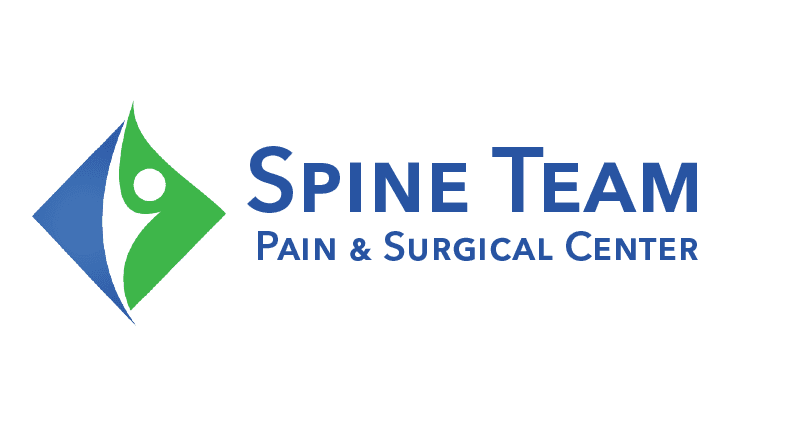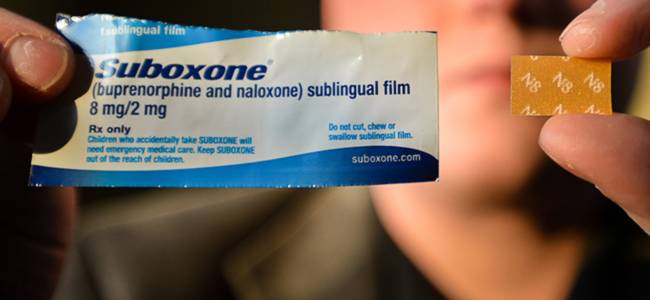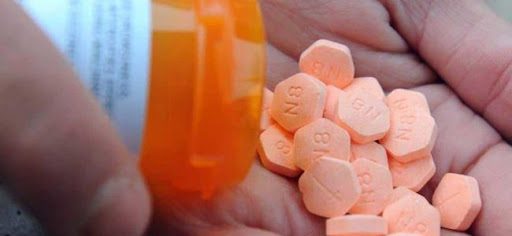Understanding Suboxone Treatment Benefits
Persistent drug addiction can often seem like a long, winding road with no end in sight. Suboxone, an FDA-approved medication used to treat opioid dependence, has been a beacon of hope for many on this challenging path.
This blog post will deconstruct the benefits of Suboxone treatment, shedding light on its effectiveness and how it surpasses other treatments in combating opioid addiction. Trust us; your journey towards recovery just got clearer!
Key Takeaways
- Suboxone is an FDA - approved medication that helps individuals manage withdrawal symptoms and cravings, making it effective in the treatment of opioid addiction.
- Studies have shown that Suboxone reduces opioid use, increases retention in treatment programs, and lowers overdose rates.
- Compared to other medications, Suboxone has advantages such as reduced euphoria, lower dependency risk, minimal withdrawal symptoms, flexible treatment regimens, cost-effectiveness, safety from overdose, and increased privacy.
What Is Suboxone and How Does It Work?
Suboxone is a medication used to treat opioid addiction by helping individuals manage withdrawal symptoms and cravings, ultimately aiding in their recovery process.
Rationale for its use
Doctors prescribe Suboxone primarily to help patients who are struggling with opioid addiction manage their withdrawal symptoms. This medication combines two active ingredients, Buprenorphine and Naloxone, which work together to reduce cravings, prevent severe withdrawal symptoms and discourage misuse.
As a partial opioid agonist, Buprenorphine eases withdrawal symptoms by activating the brain's opioids receptors at lower intensity than full agonists like heroin or prescription painkillers do.
On the other hand, Naloxone acts as an opioid antagonist blocking those same receptors; hence mitigating any euphoric effects should Suboxone be misused. Thus, this unique combination makes it less likely for patients to become dependent on Suboxone itself while effectively treating their existing opioid dependence.
History and statistics
Suboxone has a significant history of use in managing substance addiction. Its journey from inception to widespread use, along with the impactful statistics related to addiction, underscores its importance in the field of addiction medicine.
| Year | Event | Impact |
| 2002 | Suboxone approved by the FDA | First medication approved for the treatment of opioid dependence in a physician's office setting. This enhanced patient accessibility. |
| 2003 | Drug Addiction Treatment Act (DATA 2000) | Increased the number of patients physicians can treat with Suboxone from 30 to 100, thus expanding its reach. |
| 2016 | Comprehensive Addiction and Recovery Act | Further expanded the cap to 275 patients per physician, increasing access to Suboxone treatment. |
| 2017 | National Survey on Drug Use and Health (NSDUH) | Reported 2.1 million people in the U.S. had an opioid use disorder, highlighting the need for effective medications like Suboxone. |
| 2019 | Substance Abuse and Mental Health Services Administration (SAMHSA) report | Indicated that Suboxone treatment resulted in a 50% reduction in mortality rates among patients with opioid use disorder, demonstrating its effectiveness. |
It's clear from the history and statistics that Suboxone plays an essential role in the treatment of substance use disorders. Its approval, combined with legislative changes, has made it more accessible to those in need, while studies have demonstrated its effectiveness in reducing addiction-related mortality rates.
How it works
Suboxone works by combining two active ingredients, buprenorphine and naloxone. Buprenorphine is a partial opioid agonist that helps to soothe the withdrawal symptoms often experienced by individuals recovering from opioid addiction.
It does so by attaching to the same receptors in the brain as other opioids, but without producing the euphoric high that these substances typically evoke.
On the other hand, naloxone acts as an opioid antagonist to further discourage misuse of the medication. It counters any potential high resulting from misuse attempts such as injection of Suboxone.
This distinctive combination makes Suboxone an effective part of treatment plans for many struggling with opioid use disorder.
Key Benefits of Suboxone for Opioid Addiction
Suboxone treatment has been proven effective in reducing opioid cravings and withdrawal symptoms, helping individuals achieve long-term recovery from addiction.
Evidence of its effectiveness
Suboxone's effectiveness is well documented, with numerous research studies illustrating its benefits in treating opioid addiction.
| Research Study | Findings |
| Marsch et al. (2005) | Suboxone reduced opioid use and increased retention in treatment programs. |
| Fiellin et al. (2006) | Suboxone showed greater reduction in opioid use than placebo, proving its effectiveness. |
| Lee et al. (2018) | Suboxone was found to be effective in reducing illicit opioid use and overdose rates. |
| Lintzeris et al. (2009) | Suboxone showed positive results in managing withdrawal symptoms and improving well-being. |
| Potter et al. (2010) | Suboxone maintained its effectiveness over long-term use and reduced illicit drug use. |
These studies represent a fraction of the body of evidence supporting the effectiveness of Suboxone in treating opioid dependency, illustrating its positive impact on both short and long-term outcomes.
System-based treatment approach
Suboxone treatment takes a system-based approach to help individuals overcome addiction to opioids. It involves the use of buprenorphine, a partial opioid agonist, and naloxone, an opioid antagonist.
This combination works by binding to the same receptors in the brain as opioids, reducing cravings and withdrawal symptoms without producing euphoric effects. The system-based approach focuses on providing medication-assisted treatment along with counseling and behavioral interventions to address both physical dependence and underlying psychological factors contributing to substance abuse.
By incorporating various aspects of care, this comprehensive approach has been shown to be effective in promoting long-term recovery for individuals struggling with opioid addiction.
Comparative advantages over other medications
Suboxone has various comparative advantages over other medications for treating substance use disorders, which make it a preferred choice for many healthcare providers and patients alike.
| Advantage | Explanation |
| Reduced Euphoria | Suboxone's combination of buprenorphine and naloxone reduces the euphoric effects of opioids, making it less likely to be misused. |
| Lower Dependency Risk | The risk of dependency with Suboxone is lower compared to other opioid medications due to its long-acting formulation. |
| Minimal Withdrawal Symptoms | Suboxone's ability to minimize withdrawal symptoms during detoxification makes it an excellent choice for managing opioid addiction. |
| Flexible Treatment Regimen | Suboxone offers a flexible treatment regimen as it can be taken once daily, either as a sublingual tablet or as a film that dissolves under the tongue. |
| Cost-effective | When it comes to cost, Suboxone proves to be more economical over time considering its effectiveness and the reduced need for hospitalization. |
| Safer Option | Suboxone is considered a safer option as it's less likely to cause overdose compared to other opioids, due to the presence of naloxone. |
| Increased Privacy | Suboxone can be prescribed in a doctor's office, providing patients privacy and removing the need for daily visits to a clinic. |
Suboxone Safety: Side Effects and Precautions
Suboxone is a safe and effective medication for treating opioid addiction, with minimal side effects. It is important to understand the safety precautions and considerations, particularly for pregnant or breastfeeding women.
Read on to learn more about the safety and side effects of Suboxone.
Suboxone Treatment Benefits
Misconceptions and misuse potential surrounding Suboxone may lead to misunderstandings about its effectiveness and safety. It is crucial to address these misconceptions for a better understanding of the medication.
Misconceptions and Misuse Potential
Some common misconceptions include thinking that Suboxone is just another addictive drug, or that it can be easily misused. However, it's important to note that when used as prescribed under professional supervision, Suboxone has been proven effective in treating opioid addiction.
Statistics show that Suboxone treatment benefits are significant, with a high success rate in helping individuals overcome opioid addiction. According to the Substance Abuse and Mental Health Services Administration (SAMHSA), medication-assisted treatment (MAT) using Suboxone is associated with a 50% reduction in the risk of overdose-related deaths.
Suboxone works by binding to the same receptors in the brain as opioids but without producing the same euphoric effects. This helps reduce cravings and opioid withdrawal symptoms, allowing individuals to focus on their recovery journey.
One of the key advantages of Suboxone is its role in maintenance treatment. Studies have shown that maintenance treatment with Suboxone leads to better long-term outcomes for individuals recovering from opioid addiction. It not only helps in overcoming withdrawal symptoms but also provides stability, reducing the risk of relapse.
However, it's essential to emphasize that misuse potential exists, which is why it should always be used as prescribed. The National Survey on Drug Use and Health (NSDUH) reports that misuse of prescription medications, including Suboxone, is a concern, with around 1.7 million people aged 12 or older misusing them. This highlights the importance of proper medical supervision during Suboxone treatment.
Precautions and Considerations for Pregnant or Breastfeeding Women
Pregnant or breastfeeding women should take special precautions and considerations when it comes to using Suboxone for addiction treatment. It is important to consult with a healthcare provider before starting or continuing Suboxone during pregnancy or while breastfeeding.
Recent data from the Centers for Disease Control and Prevention (CDC) indicates that opioid use during pregnancy can lead to complications. This highlights the need for open communication with healthcare providers to ensure the safety of both mother and baby during this critical time.
Getting Support with Suboxone Treatment in Spokane
Access to resources and support is crucial for individuals seeking Suboxone treatment. From trainings and guides to insurance coverage, there are numerous options available. Discover the tools you need for a successful recovery journey by exploring further.
Trainings and guides
Suboxone treatment comes with several trainings and guides that are beneficial for individuals affected by addiction from drugs. These resources aim to provide support and education, helping patients understand the treatment process and navigate their recovery journey effectively. Some of the trainings and guides available include:
- Education on Suboxone: Patients receive comprehensive information about Suboxone, including its mechanism of action, dosage guidelines, potential side effects, and safety precautions.
- Counseling and Behavioral Therapy: Trainings are provided to help patients develop coping strategies and address underlying psychological factors contributing to addiction. This can improve overall outcomes and long-term recovery success.
- Group Support Programs: Patients have access to support groups where they can share experiences, receive encouragement, and learn from others who have gone through similar struggles.
- Relapse Prevention Techniques: Trainings focus on equipping patients with skills to identify triggers, manage cravings, and prevent relapse in order to maintain sobriety after completing Suboxone treatment.
- Lifestyle Changes: Guides offer practical advice on making positive lifestyle changes, such as adopting healthy eating habits, engaging in regular exercise, improving sleep patterns, and building a strong support network.
- Family Involvement: Trainings educate family members about addiction as a disease and how they can support their loved ones during treatment and recovery.
- Self-Care Strategies: Patients learn self-care techniques like stress management, mindfulness exercises, and relaxation techniques to improve their overall well-being during the recovery process.
Other medications for substance use disorders
Other medications can also be used to treat substance use disorders. These medications work in different ways and offer alternative options for those struggling with addiction. Some of the other medications commonly used include:
- Methadone: Methadone is a long-acting opioid agonist that helps to reduce cravings and withdrawal symptoms. It is often used as a substitute for opioids such as heroin or prescription painkillers.
- Naltrexone: Naltrexone is an opioid antagonist that blocks the effects of opioids and reduces cravings. It can be taken orally or administered through an injection.
- Vivitrol: Vivitrol is a sustained-release formulation of naltrexone that is given as a monthly injection. It helps to prevent relapse by blocking the euphoric effects of opioids.
- Disulfiram: Disulfiram is used in the treatment of alcohol abuse and works by causing unpleasant reactions when alcohol is consumed.
- Acamprosate: Acamprosate helps to reduce alcohol cravings and maintain abstinence in individuals who have stopped drinking.
- Bupropion: Bupropion is an antidepressant that has been found to be effective in reducing nicotine cravings and withdrawal symptoms in individuals trying to quit smoking.
- Topiramate: Topiramate, an anticonvulsant medication, has shown promise in reducing alcohol cravings and promoting abstinence in individuals with alcohol use disorder.
Access and coverage through insurance
Suboxone treatment is an effective option for individuals struggling with opioid addiction, and many people wonder if it is covered by insurance. The good news is that most health insurance plans provide coverage for Suboxone treatment.
This means that individuals can access the medication without having to bear the full cost themselves. Insurance coverage for Suboxone varies depending on the specific plan and provider, so it's important to check with your insurance company to understand what benefits are available to you.
Having access and coverage through insurance makes Suboxone treatment more affordable and accessible for those in need of help with their addiction.
Many healthcare professionals recommend exploring your insurance options when considering Suboxone treatment. By taking advantage of insurance coverage, individuals can receive the necessary medical assistance without facing excessive financial burdens.
Available resources and publications.
Numerous resources and publications are available to support individuals seeking Suboxone treatment or wanting more information about opioid addiction and recovery. These include:
- Online forums and communities: Websites and online platforms where individuals can connect with others going through similar experiences, share stories, seek advice, and find support.
- Educational materials: Brochures, pamphlets, and information sheets that provide comprehensive information about Suboxone treatment, its benefits, safety measures, and potential side effects.
- Helplines and hotlines: Telephone numbers staffed by trained professionals who can answer questions, provide support, or assist in finding local treatment options.
- Treatment directories: Online databases that list healthcare providers who specialize in addiction treatment and offer Suboxone prescribing services.
- Research studies: Academic journals and publications that present the latest research findings on Suboxone effectiveness, dosing strategies, long-term outcomes, relapse prevention strategies, and more.
- Government websites: Official websites run by government agencies such as the Substance Abuse and Mental Health Services Administration (SAMHSA), which provide resources on substance abuse treatment options, including information on Suboxone.
- Support groups: In-person or virtual support groups that bring together individuals in recovery from opioid addiction for mutual encouragement, shared experiences, and ongoing emotional support.
- Books and literature: Written materials authored by experts in the field of addiction medicine that explore various aspects of opioid addiction, recovery journeys, the science behind Suboxone treatment, and success stories.
- Medical professionals: Healthcare providers who specialize in addiction medicine or psychiatry can serve as valuable resources for individuals seeking Suboxone treatment. They have extensive knowledge about the medication's benefits and can offer personalized guidance based on individual circumstances.
- Local community organizations: Non-profit organizations dedicated to supporting individuals affected by substance use disorders may host workshops or events focused on education around medications like Suboxone.
Is Suboxone Right for You?
Suboxone offers numerous benefits for individuals struggling with opioid addiction. Its effectiveness, unique system-based approach, and comparative advantages over other medications make it a valuable tool in the treatment of opioid dependence. If you or a loved one is ready to take the first step towards recovery, don't hesitate.
Reach out to the Spine Team Pain Center, conveniently located at two Spokane locations:
510 E Holland Ave. Spokane, WA 99218
1123 N Evergreen Rd. Spokane Valley, WA 99216
With access to resources and support for Suboxone treatment, individuals have the opportunity to receive effective care and achieve long-term recovery from addiction. Contact the Spine Team Pain Center today to start your journey towards a healthier, addiction-free life.
Frequently Asked Questions About Suboxone Treatment
1. What is Suboxone and how does it treat opiate addiction?
Suboxone is a medication-assisted treatment used to help people overcome addiction to opioids like heroin or prescription drugs, by binding with opioid receptors in the brain to reduce withdrawal symptoms.
2. What benefits do patients gain from Suboxone treatment?
Patients undergoing Suboxone treatment often experience decreased cravings for opioids, reduced risk of relapse, fewer withdrawal symptoms and improved chances of long-term recovery.
3. How does Suboxone compare with methadone for treating opioid addiction?
Compared to methadone maintenance, buprenorphine (the drug found in Suboxone) can cause less respiratory depression and is safer due its status as a partial agonist at the receptor level.
4. Can anyone prescribe this type of medication-assisted treatment?
Methadone can only be dispensed through specialized clinics but any certified practitioner (like an addiction psychiatrist) can prescribe buprenophine-based medications such as suboxone from their private practice or clinic.




